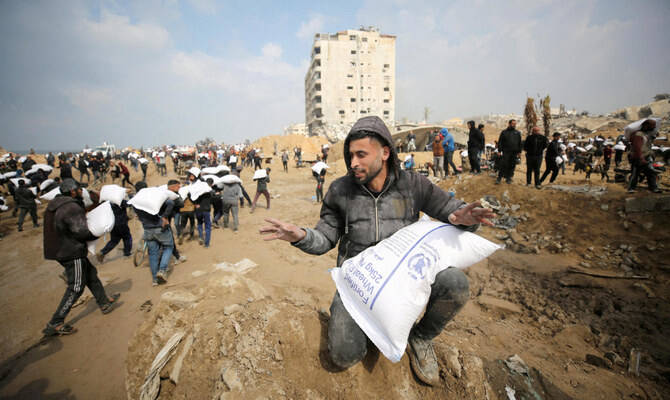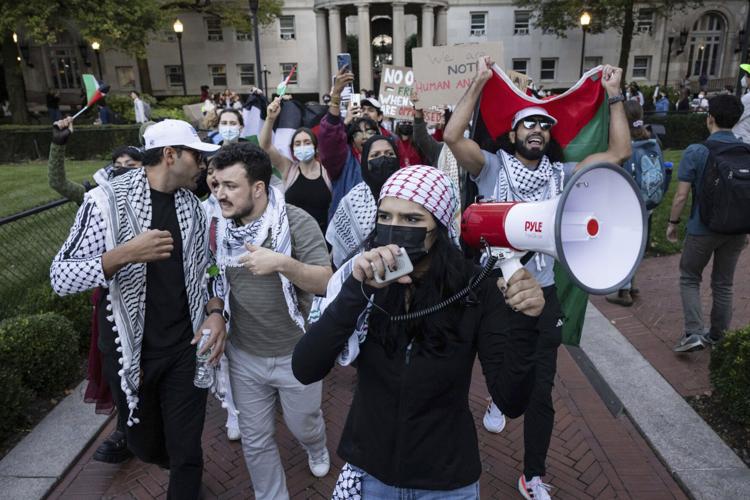The ongoing blockade of Gaza has created dire consequences for the region, particularly affecting its children. This blockade limits the availability of essential resources, leading to a surge in malnutrition rates among young users. With restricted access to nutritious food, thousands of children in Gaza face a daily struggle to meet their dietary needs. Families, who are already burdened by the economic implications of the blockade, find it increasingly challenging to provide their children with the necessary nutrition for healthy growth and development.
The impact of the blockade extends beyond just physical health. Many children experience long-term psychological effects due to stress and uncertainty about their situation. The lack of access to proper medical care further exacerbates this issue, leaving children vulnerable to various health complications. Nutritional access is not just a matter of food; it encompasses the overall well-being of children in Gaza who are caught in a situation they did not choose.
As we analyze the effects of the blockade, it is imperative to recognize the resilience of these children. Despite the heartbreaking conditions they endure, many continue to strive for a better life. Global awareness and aid are crucial in addressing these issues and ensuring that future generations of Gaza’s children can thrive without the shadow of malnutrition looming over them.
The blockade has a profound and multifaceted impact on Gaza’s children, affecting their physical health, emotional well-being, and future prospects. It is crucial for the global community to understand these complexities and take action to support the people of Gaza.
Current Malnutrition Rates Among Children In Gaza
The ongoing blockade in Gaza has had a devastating impact on the health and well-being of children in the region. Recent reports indicate that malnutrition rates among children are alarmingly high, with a significant percentage suffering from stunted growth and underweight conditions. Poor access to essential nutritional resources due to the blockade restricts families from providing adequate food, leading to severe health consequences for the youngest members of society.
According to UNICEF, approximately 1 in 5 children in Gaza is affected by chronic malnutrition, and this situation has been exacerbated by ongoing conflicts and economic challenges. The blockade not only limits the availability of food but also restricts the import of key nutritional supplements that could support the health of these children. Parents are increasingly reliant on humanitarian aid and local organizations, which often struggle to meet the growing needs of families.
As the crisis deepens, the development of children is hindered, affecting their physical and cognitive growth. Addressing the nutritional needs of children in Gaza requires urgent attention and action from both local and international communities. With the situation continuing to evolve, it is essential to advocate for policies and initiatives that prioritize the health and welfare of these young individuals, ensuring they can thrive despite the challenges posed by the blockade.
Every effort counts in the fight against malnutrition, as these children represent the future of Gaza. Initiatives focused on improving access to nutritious food and medical resources are vital in reversing the grim statistics and safeguarding the lives of children in Gaza.
How The Blockade Affects Nutritional Access For Families
The ongoing blockade of Gaza has led to a catastrophic situation for its residents, particularly affecting children who are increasingly suffering from malnutrition. With limited access to essential food items, families are struggling to provide nutritious meals for their offspring. The restrictions imposed on the movement of goods and resources have made it challenging for families in Gaza to secure adequate nutrition. The lack of fresh produce and essential dietary supplements has translated into a worrying rise in malnutrition rates among the children of Gaza. These children are not only deprived of their physical well-being but also face long-term developmental consequences due to inadequate nutrition.
Moreover, the blockade has severely hindered the ability of aid organizations to deliver vital food supplies to those in need. Many families are forced to rely on limited and often unhealthy food options due to the scarcity of resources. The overall situation is dire, as children in Gaza are leaving their formative years behind with diminished health and stunted growth. To alleviate this suffering, there needs to be a concerted effort from the global community to address the impact of restrictions on nutritional access, ensuring that no child has to endure hunger and malnutrition.
Despite the challenges posed by the blockade, there is hope in the form of international solidarity and aid.
Implementing Solutions: Supporting Children In Gaza Through Aid
The ongoing conflict and the blockade have severely affected the lives of countless families in Gaza, leading to a dire situation for its most vulnerable population—children. The impact of malnutrition among children in Gaza cannot be overstated, as it not only affects their physical health but also impairs their cognitive development. Aid organizations are working tirelessly to implement solutions that aim to provide immediate food assistance and long-term nutritional support.
One of the critical steps in addressing the malnutrition crisis is the establishment of community kitchens and food distribution centers that can serve children and their families. This direct intervention can help separate those in need from the devastating effects of the blockade, ensuring access to nutritious meals. Furthermore, educational programs about proper nutrition can empower families to make healthier food choices with the resources available to them.
International aid is essential in this regard, as it plays a pivotal role in alleviating the suffering of children in Gaza. By supporting local NGOs and health organizations, we can establish sustainable programs that focus on nutritional education, medical assistance, and support for mental health. As the world watches the plight of these children, it is vital that we respond with urgency and compassion, ensuring that every child receives the support they need to thrive amidst adversity.
Through collaboration and commitment, we can work towards a future where children in Gaza receive not just the basic necessities but also the support and opportunities they deserve to grow up healthy and hopeful.
Global Response: What Can Be Done To Alleviate Suffering
The humanitarian crisis in Gaza, exacerbated by the ongoing blockade, has resulted in a dire situation for many families, particularly for children. The blockade has severely limited access to essential resources, leading to alarming malnutrition rates among young ones. International organizations are urging for a more robust global response to address the suffering and provide immediate assistance. Global advocacy can play an essential role in mobilizing resources and raising awareness about the plight of Gaza’s children. By amplifying their voices, we can work towards creating pathways for aid and support that can alleviate their suffering.
It is imperative for nations around the world to unite in addressing the humanitarian needs in Gaza. Initiatives aimed at providing food security, healthcare, and educational support are critical. Governments can implement policies that ease restrictions on humanitarian aid and foster partnerships with NGOs to deliver essential supplies directly to those in need. As the global community enhances diplomatic efforts to resolve the conflict, sustained attention must be given to the plight of the most vulnerable: children who are often caught in the crossfire. The blockade’s impact leaves them isolated, deprived of the basic necessities required for a healthy upbringing.
Efforts must also focus on raising awareness about the importance of mental health for these young ones. Chronic stressors from the blockade can lead to long-term psychological effects on children and their families. Global advocates can push for funding dedicated to mental health services, which are equally crucial in healing the scars left by conflict.




